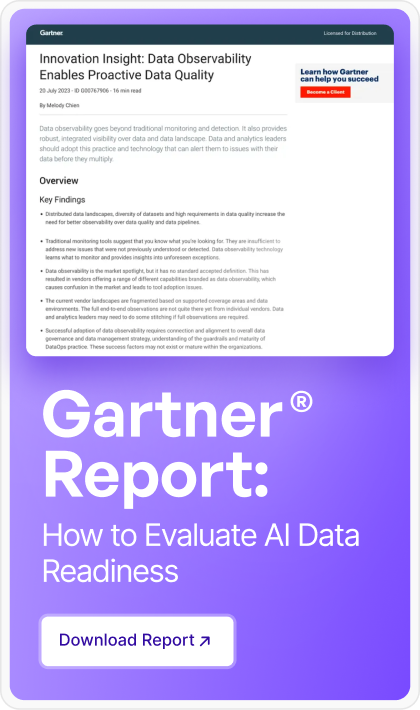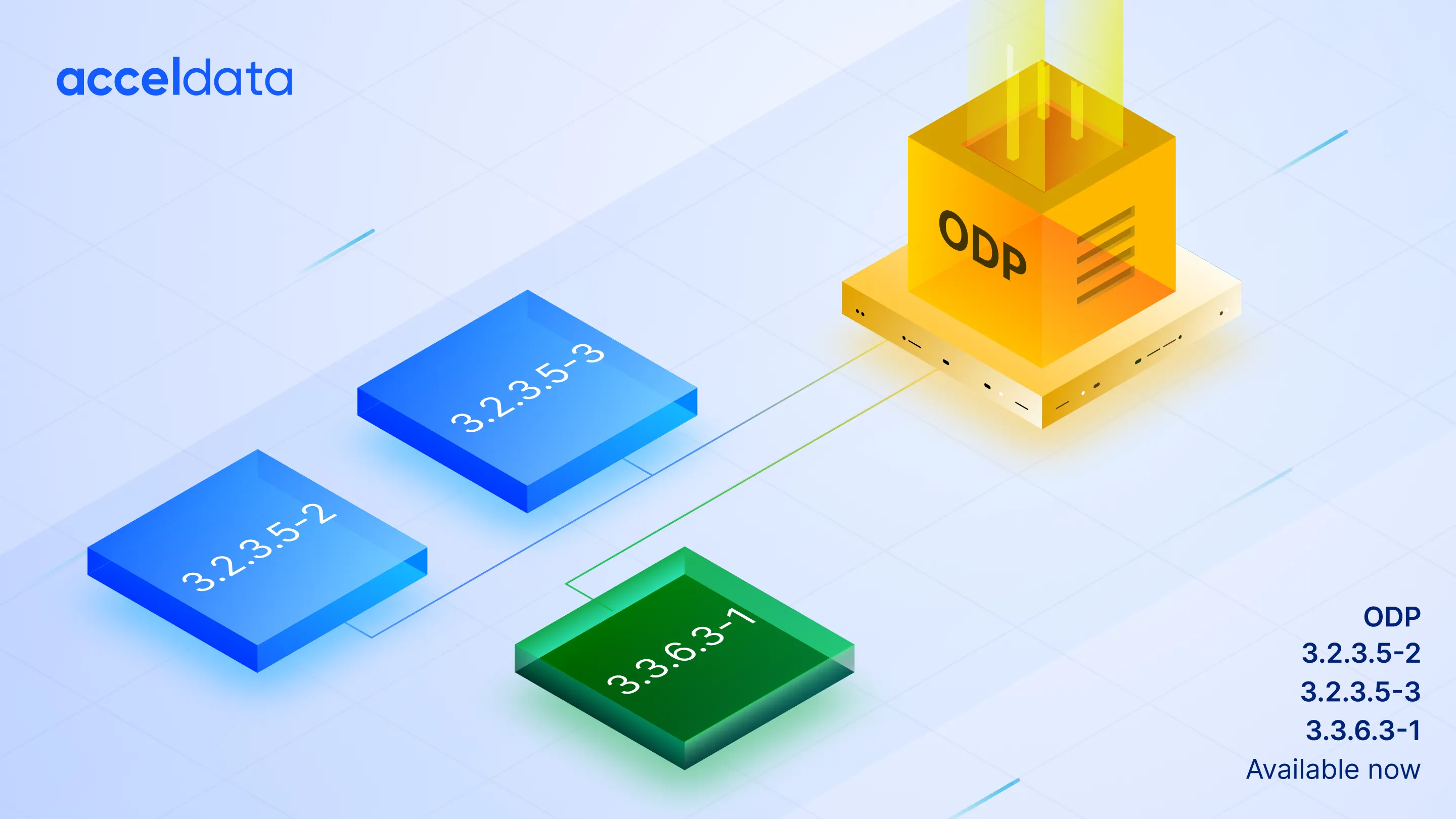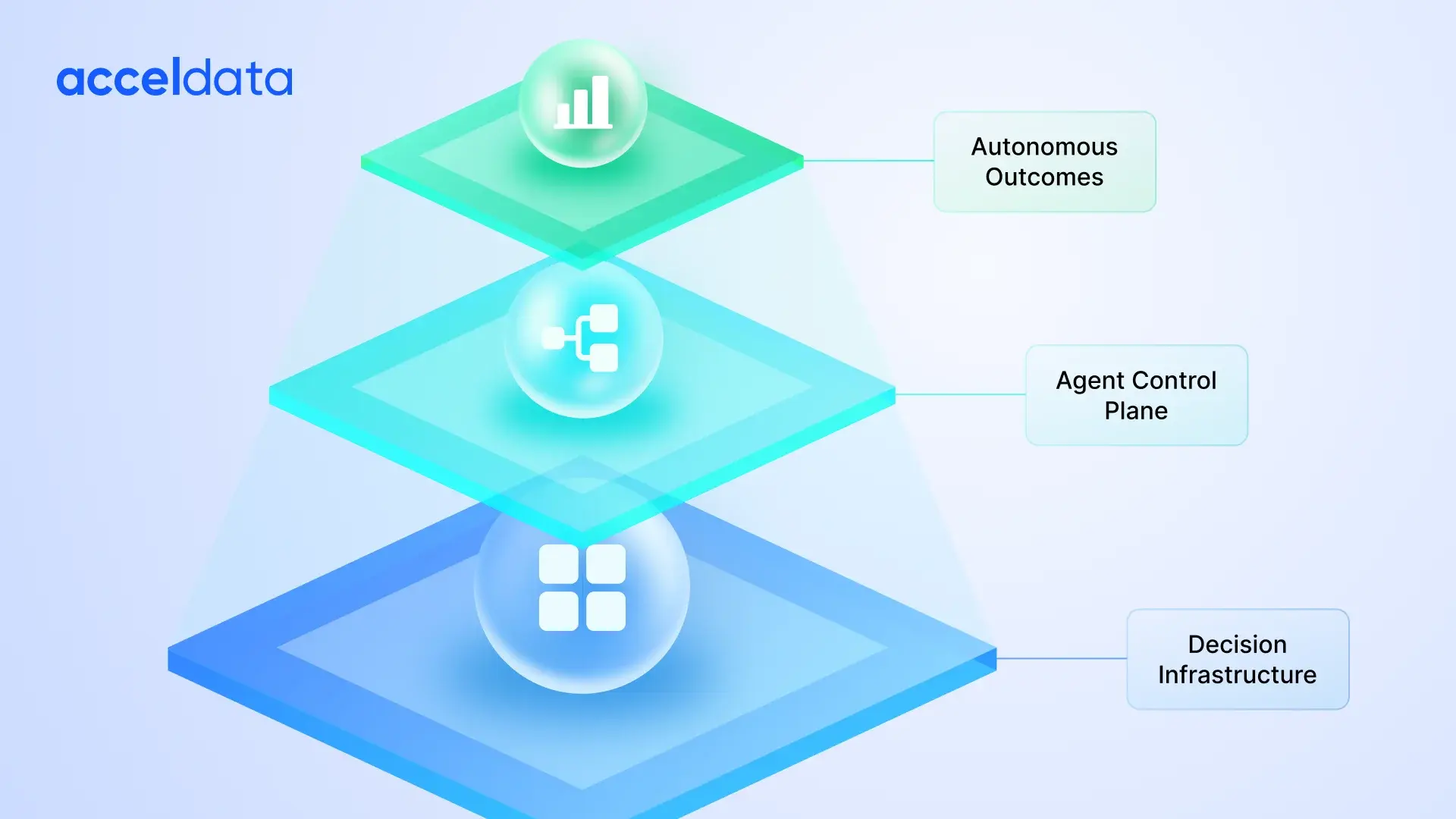Data is the backbone of modern businesses, driving strategic decisions, operations, and customer interactions. Yet, a recent RTInsights survey indicates that only 23% of organizations believe they have a consistent data management strategy and 75% of business executives don’t have trust in their data.
Without effective data quality improvement measures, data pipeline inefficiencies can cripple an organization's ability to leverage insights for competitive advantage. Modern data management requires artificial intelligence (AI) as a transformative approach by applying AI techniques to improve both data quality and pipeline management. This evolution not only enhances operational efficiency but also ensures data is reliable, accurate, and timely.
In this article, we will explore how AI techniques are reshaping the way organizations approach data quality improvement and pipeline management. By using AI in data engineering, companies can optimize data flows, enhance data accuracy, and automate decision-making processes.
What Is Data Quality and Pipeline Management?
Data quality refers to the accuracy, completeness, consistency, and reliability of data. Inaccurate or incomplete data can lead to poor business decisions and missed opportunities, which is why data quality improvement is a top priority for enterprises. Key elements of data quality include verifying data correctness, eliminating duplicates, and ensuring data is up to date.
Data pipeline management involves overseeing the flow of data from its source to its destination while ensuring efficient data transformation, loading, and storage. It also involves organizing data in ways that maintain its integrity, enabling organizations to process and analyze it in real-time or near-real-time environments.
Without efficient data quality and data pipeline processes, businesses are likely to face delays, errors, and increased costs—hindering their ability to respond to market changes.
The Importance of Data Pipelines: Ensuring Seamless Data Flow
Once data is collected, having a well-structured data pipeline is crucial for maintaining its usability and reliability throughout the lifecycle. A data pipeline automates the process of moving raw data from its source to its destination—often a database or data warehouse. There, it can be processed, analyzed, and stored for future use. Without a streamlined pipeline, organizations risk bottlenecks, delays, and potential data loss, all of which can negatively impact business decisions.
Flow of data in a pipeline
This is how data flows in a pipeline:
- Data ingestion: The process starts with collecting data from various sources, including databases, APIs, sensors, or cloud services. This data can come in different formats, such as structured, semi-structured, or unstructured.
- Data transformation: Once ingested, the data needs to be cleaned, validated, and transformed to meet the desired format or structure. This step may include removing duplicates, correcting errors, or enriching the data.
- Data storage: After transformation, the processed data is stored in a data warehouse, lake, or other storage systems where it becomes accessible for analysis.
- Data analysis: Finally, the data flows into analytics tools where it is used for reporting, machine learning models, or other decision-making processes.
A well-functioning pipeline ensures data quality improvement by continuously monitoring the flow and maintaining data accuracy and consistency at every stage.
Use Cases of AI in Data Engineering
Several industries are leveraging AI techniques to enhance data quality improvement and pipeline management. Here are some key use cases:
1. Financial sector
In the financial industry, maintaining accurate data is critical for regulatory compliance and fraud detection. AI-powered tools can automatically reconcile large volumes of transaction data, ensuring consistency, and reliability across financial systems. For example, JP Morgan utilizes AI in data engineering to process millions of transactions and payment validations in real time, ensuring data accuracy while complying with financial regulations.
2. Healthcare
AI techniques are transforming healthcare by improving the quality of patient data. AI-driven tools ensure medical records are complete, up-to-date, and free of errors, reducing the risk of misdiagnoses. Cleveland Clinic uses AI to manage its data pipelines, integrating real-time patient data from wearables and sensors to improve clinical decision-making.
3. E-commerce
AI in data engineering helps e-commerce companies optimize customer experiences by ensuring that data pipelines deliver accurate product recommendations and personalized marketing. Amazon leverages AI data analytics to manage its vast customer data pipeline, improving data flow efficiency while reducing errors in order processing.
Benefits of AI-Driven Data Quality and Pipeline Management
AI in data engineering offers numerous advantages for organizations across all sectors. These include:
- Increased efficiency: AI reduces manual data management tasks, allowing teams to focus on strategic initiatives.
- Improved accuracy and consistency: AI techniques ensure data is consistently accurate, reducing costly errors and improving decision-making.
- Scalability: AI-powered data pipelines can scale to handle massive data volumes without compromising performance.
- Cost-savings: AI reduces operational costs by automating repetitive tasks and improving data pipeline performance.
How Acceldata Optimizes Data Quality and Pipeline Management
AI techniques are revolutionizing how organizations approach data quality and pipeline management. As data volumes grow and real-time decision-making becomes more critical, AI in data engineering will continue to play a pivotal role in improving data quality, reducing inefficiencies, and enhancing scalability. By embracing AI, organizations can not only optimize their data pipelines but also ensure the accuracy, consistency, and reliability of their data—paving the way for long-term success in an increasingly competitive market
Acceldata’s data observability platform empowers businesses with advanced AI techniques to monitor, manage, and enhance their data pipelines in real time. Acceldata provides actionable insights that help companies maintain data accuracy, streamline pipeline operations, and ensure data governance compliance.
By integrating AI-driven data observability into your organization, you can ensure your data remains reliable, accessible, and scalable. Acceldata’s platform is designed to meet the unique demands of modern enterprises, offering seamless data quality improvement and end-to-end pipeline management. Request a demo to see how Acceldata can transform your data landscape.
Summary
AI is transforming data engineering by improving data quality and streamlining pipeline management. AI techniques enhance data accuracy, identify inconsistencies, and optimize the flow of data through pipelines, ensuring timely and actionable insights. In industries like finance and healthcare, AI-driven data analytics are being used to automate processes, improve decision-making, and enhance data governance. Implementing AI in data pipelines allows organizations to manage vast amounts of data more effectively, reducing errors and enhancing operational efficiency. Tools like Acceldata’s data observability platform further improve data quality and pipeline management by providing real-time monitoring and automated troubleshooting.








.png)








.webp)
.webp)


